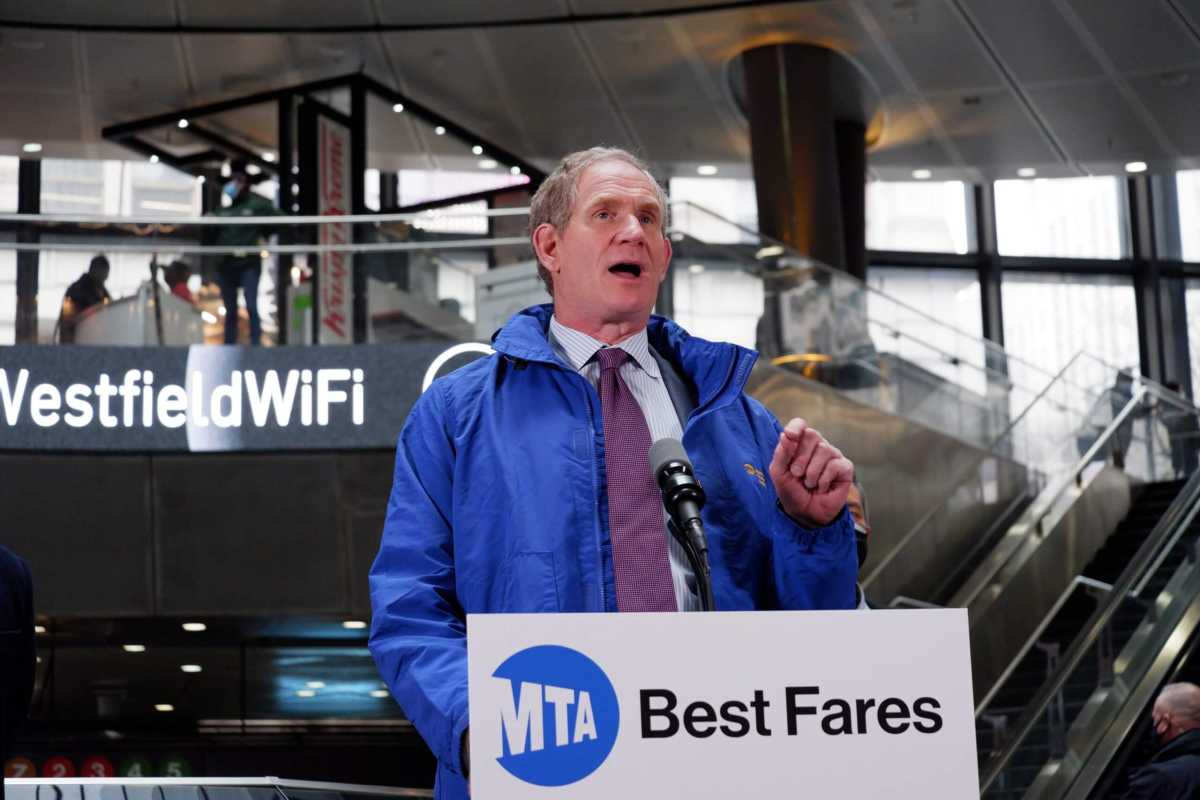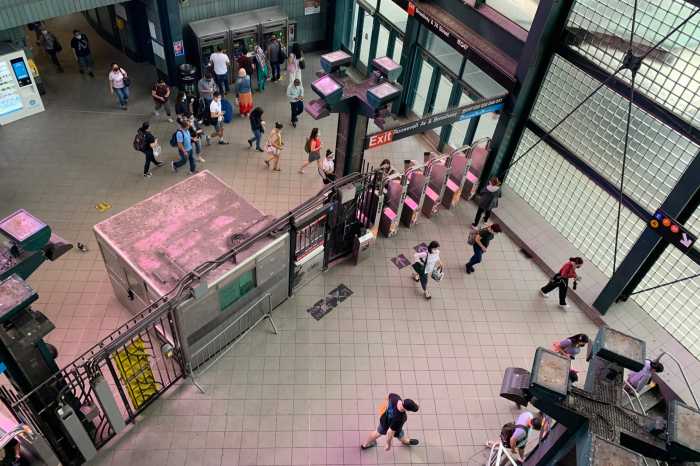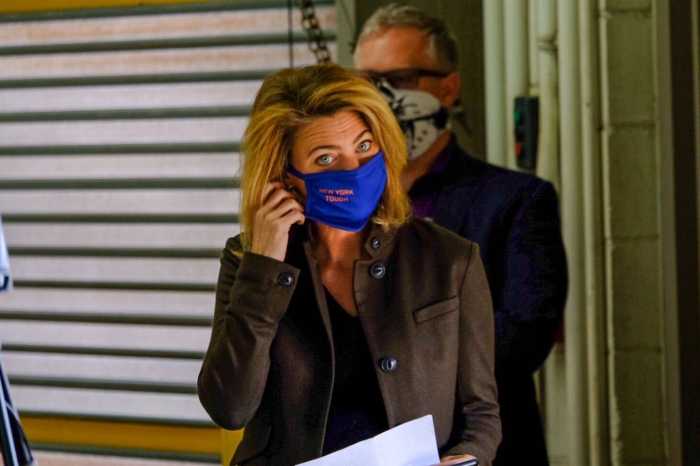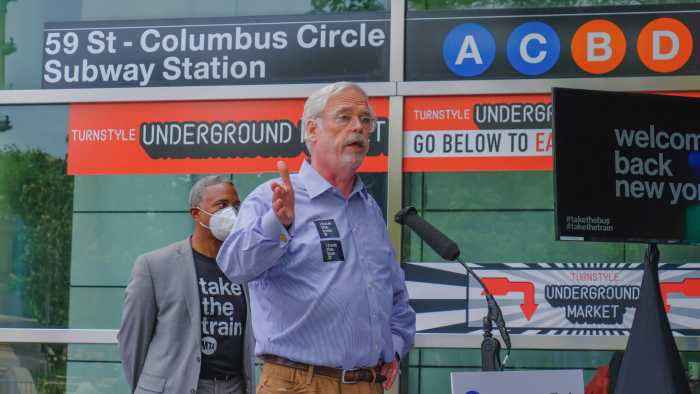I often say that while I love Times Square, Prospect Park and other New York destinations, the transit system is, in its own way, a sacred space. While it may not remind you of a church, mosque, or synagogue, it’s where New Yorkers of all backgrounds encounter each other every day and prove out the world’s greatest experiment in diversity and tolerance.
But our New York sense of fairness and community is violated when people break the rules — the most basic of which is that everybody pays the fare to enter the system.
For the millions who do pay, it’s incredibly demoralizing and frustrating to see others waltz in through a subway emergency gate or rush past a bus operator without swiping or tapping in. The same goes for evasion on the commuter rails and drivers who obscure their license plates or use fake plates to avoid paying tolls at MTA crossings.
Some of my most memorable moments at the MTA were when everyday New Yorkers — many of them on fixed incomes — have said that seeing rampant fare evasion feels like an insult. Why should they bother doing the right thing when so many others don’t?
Fare evasion doesn’t just threaten our social fabric – it also threatens the MTA’s finances. Significant budget deficits are looming. We simply can’t afford to keep losing $500 million a year to evasion, as we expect to in 2022 based on current trends. Every dollar lost to evasion is a dollar we can’t spend to deliver and improve service.
Last week, I announced a blue-ribbon “Fareness” panel of New York leaders from across industries and communities. The panel will take a fresh look at evasion across the MTA system and recommend new strategies for reducing it. I’m asking the panel to focus on education – getting the message out that paying the fare is just plain good civic behavior; equity – how we can make sure, through tools like the City’s Fair Fares discounted payment program, that nobody skips the fare due to an inability to pay; and enforcement — finding new civil fine and law enforcement tools that reduce evasion without over policing. The panel will also look at design and technology solutions.
I understand that evasion enforcement has been a hot-button issue in the past given concerns about racial and social justice. So let me say loud and clear: I am not interested in perpetuating a system that criminalizes young people who only need some education and a second chance. Let’s look, for example, at expanding civil remedies.
And let’s look at the possibility of limiting criminal enforcement to serious recidivists, and violent criminals who skip the fare on the way to committing more serious harm once inside our system. We’ll work with our district attorneys, police and legislative partners on all the above.
The “Fareness” panel will be doing its work during the spring and summer and will report out to the public in the fall. We’re open to all ideas that help us convey that paying the fare isn’t just something we owe the MTA, it’s something we owe each other.
Janno Lieber is MTA chair and CEO.



































